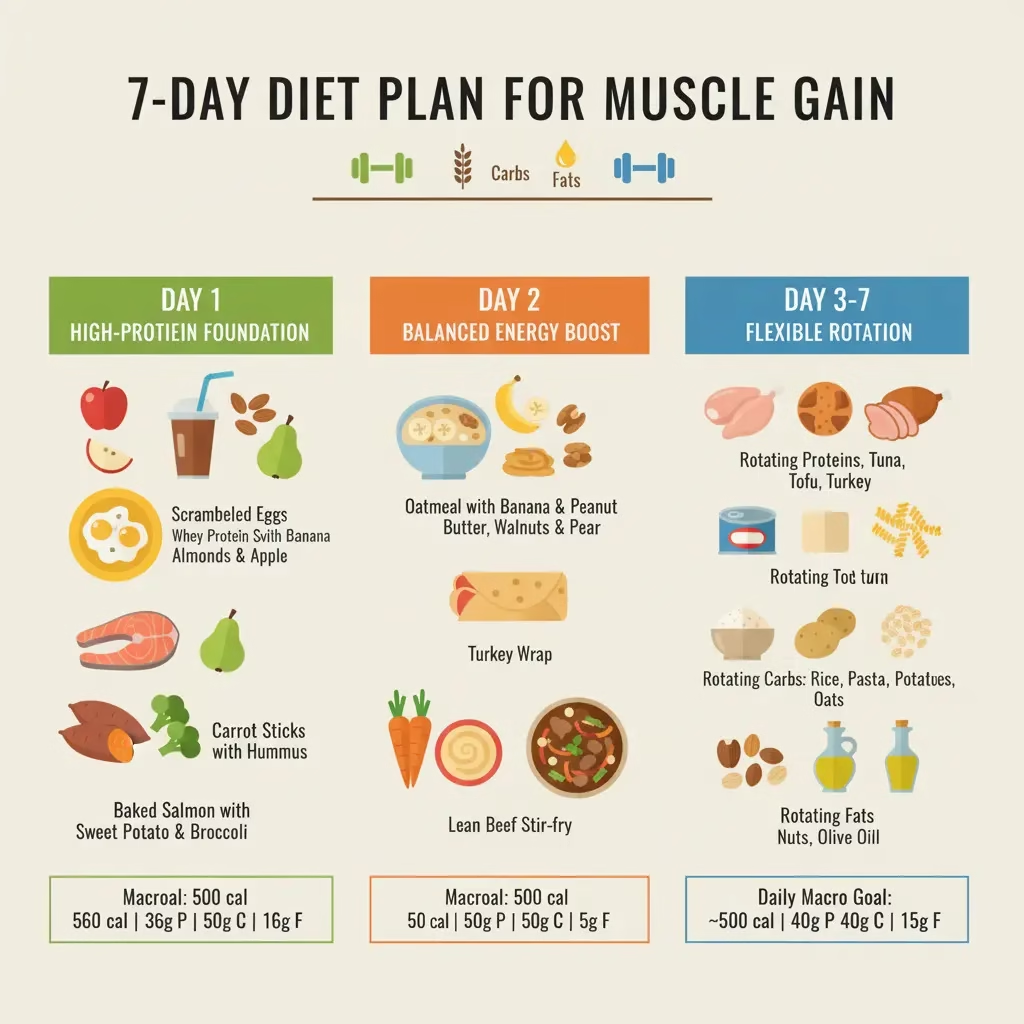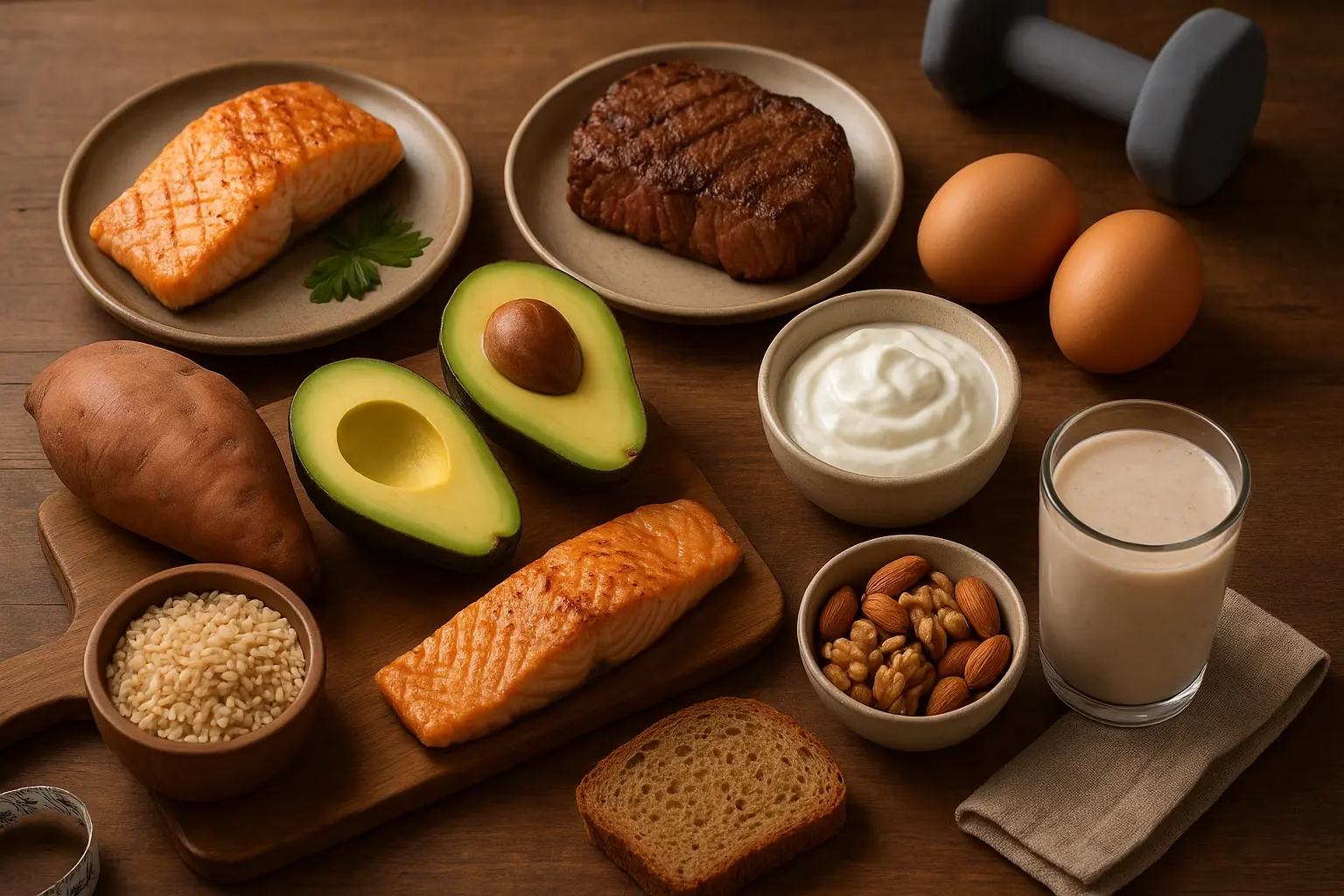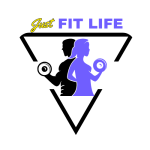Check out
6 Proven High Calorie Protein Diets That Build Mass7-Day Diet Plan for Muscle Gain: Build Lean Mass Fast
A good diet plan for muscle gain is the most important part of any successful body transformation journey. You need to spend a lot of time in the gym, but what you eat will decide if you build lean muscle or just waste your time. A lot of people who are into fitness have trouble seeing results because they don’t have a clear plan for what to eat that will help them with their workouts.
This complete guide has everything you need to help your muscles grow in the best way. Readers will learn about a full 7-day meal plan, the best ways to break down macros, the best foods for building muscle, and useful tips for getting the most out of their efforts. This plan gives you steps you can take to get a stronger, more muscular body, whether you’re just getting started or want to improve your current eating habits.
Here’s what this diet plan for muscle gain covers:
- Calorie Surplus Essentials: Learn how to calculate the right caloric intake for steady muscle growth
- Optimal Macronutrients: Understand protein, carb, and fat ratios for maximum gains
- Complete 7-Day Meal Plan: Detailed daily meals with calorie and macro breakdowns
- Best Foods for Building Muscle: Top high protein foods and lean protein sources to prioritize
- Foods to Avoid: Items that sabotage progress and slow muscle development
- Meal Timing Strategies: When to eat for optimal post workout nutrition and recovery
- Supplement Guidance: Essential and optional supplements to enhance results
- Practical Meal Prep Tips: Time-saving strategies for busy schedules
- Progress Tracking Methods: How to monitor gains and adjust the plan accordingly

To build muscle, you need to do more than just lift weights. To fix damaged muscle fibres and make new tissue, the body needs enough nutrients. Even the most intense training programs won’t work if you don’t eat right.
- Protein synthesis must exceed protein breakdown
- A calorie surplus diet provides energy for tissue growth
- Complex carbs fuel intense training sessions
- Healthy fats support hormone production crucial for muscle development
A lot of people unknowingly hurt their muscle-building efforts by making bad food choices. Knowing about these problems can help you avoid wasting time and getting upset.
Frequent mistakes include:
- Insufficient protein intake (less than 1.6g per kg bodyweight)
- Inconsistent meal frequency leading to missed opportunities
- Following dirty bulking approaches that add more fat than muscle
- Ignoring nutrient timing around workouts
- Consuming too many processed foods to avoid
- Not tracking calories or macros accurately
Common mistakes are:
- Not getting enough protein (less than 1.6g per kg of body weight)
- Not eating at the right times can cause you to miss out on chances.
- Following dirty bulking methods that add more fat than muscle
- Not paying attention to when you eat around workouts
- Eating too many processed foods is bad for you
A calorie surplus diet means eating more calories than your body burns each day. This extra gives your body the building blocks it needs to make new muscle tissue. A surplus of 300–500 calories above maintenance level is best for most people when it comes to building muscle and losing fat.
How to figure out what you need:
- Use online calculators to figure out your basal metabolic rate.
- Take into account how active you are and how hard you train.
- Add 300 to 500 calories to your maintenance level.
- Check your weight once a week and make changes as needed.
Getting the right macro breakdown gives the body the right fuel ratios for growth and recovery. Research and real-life use with athletes have confirmed these percentages.
Recommended macronutrient distribution:
- Protein: 30-35% of total calories (1.6-2.2g per kg bodyweight)
- Carbohydrates: 40-50% of total calories
- Fats: 20-25% of total calories
If you eat 2,800 calories a day, that means you get about 210 grammes of protein, 350 grammes of carbs, and 62 grammes of fat. These ratios help with hard training and clean bulking instead of gaining too much fat.
This 7-day muscle gain diet gives you structured meals that add up to 2,800 to 3,000 calories a day. Every day, you eat the right amounts of foods that are high in protein, complex carbs, and healthy fats.
Breakfast: 3 scrambled eggs with spinach, 2 whole-grain toast slices, Greek yogurt with berries
- Macros: 500 calories, 36g protein, 50g carbs, 16g fat
Mid-Morning Snack: Whey protein shake with banana
- Macros: 225 calories, 24g protein, 35g carbs, 2g fat
Lunch: Grilled chicken breast (6 oz), quinoa (1 cup), steamed vegetables
- Macros: 600 calories, 58g protein, 60g carbs, 10g fat
Afternoon Snack: Almonds (1 oz) and apple
- Macros: 260 calories, 6g protein, 30g carbs, 14g fat
Dinner: Baked salmon (6 oz), sweet potato, steamed broccoli
- Macros: 510 calories, 42g protein, 50g carbs, 15g fat
Evening Snack: Cottage cheese with honey
- Macros: 240 calories, 28g protein, 18g carbs, 2g fat
Daily Total: 2,835 calories | 194g protein | 243g carbs | 59g fat
Breakfast: Oatmeal with protein powder, sliced banana, peanut butter
- Macros: 500 calories, 28g protein, 60g carbs, 16g fat
Mid-Morning Snack: Walnuts and pear
- Macros: 285 calories, 4g protein, 30g carbs, 18g fat
Lunch: Turkey breast wrap with avocado, whole wheat tortilla, mixed greens
- Macros: 400 calories, 25g protein, 45g carbs, 15g fat
Afternoon Snack: Carrot sticks with hummus
- Macros: 150 calories, 4g protein, 20g carbs, 8g fat
Dinner: Lean beef stir-fry with brown rice and vegetables
- Macros: 666 calories, 47g protein, 70g carbs, 20g fat
Evening Snack: Casein protein shake for overnight recovery
- Macros: 150 calories, 28g protein, 3g carbs, 1g fat
Daily Total: 2,151 calories | 136g protein | 228g carbs | 78g fat
The remaining days follow similar structures while varying protein sources and carbohydrate choices for nutritional diversity and sustained interest.
Protein rotation options:
- Tuna steaks
- Lean ground turkey
- Tilapia fillets
- Lean pork tenderloin
- Tofu or tempeh for plant-based options
Carbohydrate variety:
- Basmati rice
- Whole wheat pasta
- Butternut squash
- White potatoes
- Barley
- Whole grain bread
Sample Day 5 highlights:
- Dinner: Baked cod with roasted vegetables
- Breakfast: Protein pancakes with berries
- Lunch: Grilled tofu over wild rice
Lean protein sources are the most important part of any diet plan for building muscle, whether you’re a man or a woman. These foods have amino acids that are important for repairing and growing muscles.
Best protein choices:
Whey protein powder: 24g protein per scoop Chicken breast: 31g protein per 4 oz serving Salmon: 25g protein plus omega-3 fatty acids Lean ground beef: 22g protein per 3 oz Eggs: 6g protein each with complete amino acid profile Greek yogurt: 17g protein per 6 oz Cottage cheese: 28g protein per cup Turkey breast: 26g protein per 4 oz Tuna: 20g protein per 3 oz can Whey protein powder: 24g protein per scoop
Complex carbs give you energy for long workouts and help your body store glycogen. These should make up most of the carbs in any gym diet for building muscle.
Top carbohydrate sources:
- Brown rice
- Quinoa
- Sweet potatoes
- Oatmeal
- Whole wheat pasta
- White potatoes (post-workout)
- Whole grain bread
- Barley
Healthy fats help make testosterone and keep hormones in balance, which is important for building muscle. Try to get 20–25% of your daily calories from good fat sources.
Best fat sources:
- Avocados
- Almonds and walnuts
- Natural peanut butter
- Olive oil
- Fatty fish (salmon, mackerel)
- Chia seeds and flaxseeds
- Coconut oil
Some foods to stay away from can make it harder to build muscle by making you gain fat, causing inflammation, or taking the place of healthy foods.
Limit or eliminate these items:
- Sugary beverages and sodas
- Deep-fried foods
- Candy and processed sweets
- Alcohol (impairs protein synthesis)
- Refined white bread and pastries
- High-sugar cereals
- Fast food burgers and pizza
- Ice cream and desserts
Clean bulking is all about building muscle while keeping fat to a minimum. This method puts whole, nutrient-rich foods ahead of junk foods that are high in calories. It’s okay to have treats every now and then, but most of your calories should come from healthy foods that help you stay healthy and perform well.
Instead of eating two or three large meals throughout the day, the majority of successful muscle builders eat five or six smaller ones. This method of meal frequency keeps amino acid levels constant and avoids overfulfillment, which can reduce caloric intake overall.
Benefits of frequent eating:
- Consistent protein delivery to muscles
- Sustained energy levels throughout the day
- Better nutrient absorption
- Easier to consume required calories
The timing of post-workout nutrition has a big impact on muscle growth and recovery. When muscles are ready to absorb nutrients, the time right after training is a great time to do so.
Optimal post-workout approach:
- Consume within 30-60 minutes of finishing training
- Include 25-40g fast-digesting protein (whey)
- Add 50-75g simple carbohydrates
- Example: Protein shake with banana and honey
Such nutrient timing techniques speed up recovery in between sessions and optimize the anabolic response to training.
Eating one to two hours prior to training gives you the energy you need for long, hard sessions while also giving your body enough time to digest.
Effective pre-workout meals:
- Oatmeal with protein powder and berries
- Chicken breast with rice and vegetables
- Whole grain toast with peanut butter and banana
Whole foods should serve as the cornerstone of nutrition, but some supplements can close gaps and improve outcomes in a muscle-gain diet plan for both novice and experienced athletes.
Core supplements to consider:
- Whey protein powder: Convenient way to meet daily protein targets
- Creatine monohydrate: Increases strength and muscle volume (5g daily)
- Omega-3 fish oil: Reduces inflammation and supports recovery
Additional supplements for advanced users:
- Pre-workout formulas for energy and focus
- BCAAs during long training sessions
- Vitamin D3 for hormone support
- Multivitamin to cover micronutrient gaps
Regular monitoring shows whether the weight-gain meal plan is effective or needs to be modified.
Key metrics to track:
- Weekly body weight (same day/time each week)
- Body measurements (chest, arms, waist, thighs)
- Progress photos every 2 weeks
- Strength levels on major lifts
- Energy and recovery quality
Ideal muscle gain rate:
- Beginners: 1-2 pounds per month
- Intermediate: 0.5-1 pound per month
- Advanced: 0.25-0.5 pounds per month


What are the best foods to eat to grow muscle?
The best foods for bulking include high protein foods like chicken breast, salmon, eggs, Greek yogurt, lean beef, and cottage cheese paired with complex carbs such as brown rice, sweet potatoes, and quinoa. Add healthy fats from avocados, nuts, and olive oil to complete a balanced gym diet for muscle gain that supports optimal muscle development.
What is the best diet for muscle gain?
The best diet plan for muscle gain includes a calorie surplus diet of 300-500 calories above maintenance with a macro breakdown of 30-35% protein, 40-50% carbs, and 20-25% fats. Follow a structured 7-day meal plan with 5-6 meals daily, prioritize clean bulking with whole foods, and include strategic post workout nutrition within 60 minutes of training.
What is a high-protein breakfast for muscle gain?
Excellent options include 3-4 scrambled eggs with spinach and whole-grain toast (36g protein), oatmeal with protein powder and banana (28g protein), or Greek yogurt parfait with granola (20g protein). These high calorie muscle gain meals provide 25-40g protein to kickstart recovery and fuel morning training sessions effectively.
Is bread good for bulking?
Yes, whole-grain bread provides beneficial complex carbs for energy and muscle growth, with 2-4 slices daily fitting well into a meal plan for weight gain. Pair it with lean protein sources like turkey or eggs, but avoid processed white bread listed among foods to avoid in any lean bulk meal plan.
How many eggs per day to build muscle?
Consuming 3-6 whole eggs daily provides 18-36g of high-quality protein and is safe for muscle building foods strategies in any diet plan for muscle gain for beginners or advanced programs. Combine whole eggs with egg whites (2 whole + 4 whites = 32g protein) for higher protein without extra calories in muscle gain meal prep.
A well-organized muscle-gain diet plan turns well-intentioned goals into observable outcomes. This seven-day muscle gain diet offers the structure required to efficiently support muscle growth while steering clear of typical pitfalls that squander time and energy.
Consistency in diet and training is essential for success. An ideal growth environment is produced by the combination of muscle-building foods, appropriate macro breakdown, planned meal preparation for muscle growth, and nutrient timing. These guidelines are applicable whether you’re a novice following a gym diet to gain muscle or you’re improving an already-existing strategy.
